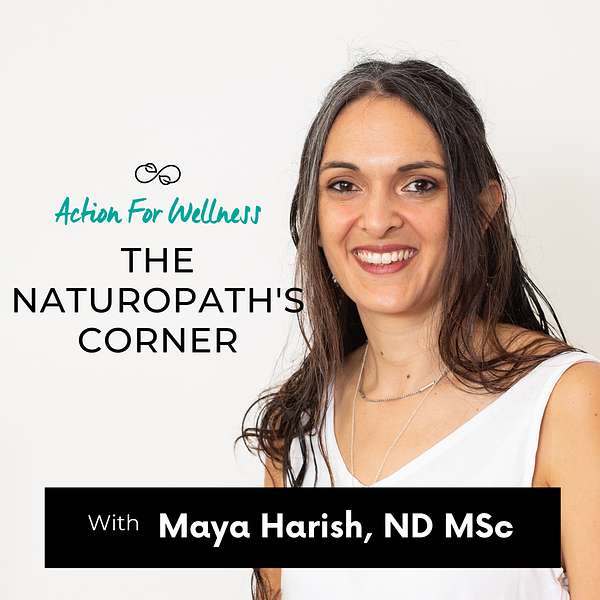
Action For Wellness - The naturopath's corner
Action For Wellness - The naturopath's corner
Ep3 Am I getting enough protein?
Use Left/Right to seek, Home/End to jump to start or end. Hold shift to jump forward or backward.
Am I eating enough protein?
If I eat less meat, won’t I have a protein deficiency?
Maybe I should add protein powder to my daily diet?
Should I switch to a paleo diet?
I can say myself that one of the questions I was asked most frequently after choosing to
become vegetarian at age 11 was: Where do you get protein from? (It did not take long for
those who saw me to see that my growth was not really harmed ...)
There is a very common (although incorrect) idea that vegetarians and vegans will not get
enough protein in their diet because they do not eat meat. More than that, there are more
and more people today who support the claim that we should all eat very high amounts of
protein in order to lose weight.
So how do you know how much is too little protein? Too much protein? How much protein
do you need at all?
That's what today is all about!
Protein is essential for the body, it is necessary, among other things, to build and repair cells
in the body, and in the production of enzymes, hormones and antibodies. Apart from that,
eating protein contributes to a feeling of satiation - which can reduce the feeling of hunger
and prevent us from craving the less healthy kind of snacks.
The average person needs at least 0.8 grams of protein per kilogram of body weight, and this
can go up to about 2 grams per kilogram if you exercise regularly, or try to reduce fat levels
without losing muscle mass. Pregnant women and nursing mothers also need more protein.
On average it can be said that the recommendations for protein intake are about 56 grams
per day for a man and 46 grams per day for a woman, but it is quite easy to calculate this
personally according to your weight ...
In general: this means 48 grams of protein per day for a person weighing 60 kg, 56 grams of
protein for a weight of 70 kg, 64 grams of protein per day for a weight of 80 kg.
So, who still needs to worry about protein deficiency?
Most foods contain a certain amount of protein, and true protein deficiency is extremely
rare in developed countries. Protein deficiency rates are highest in Central African and
Southeast Asian countries, and can reach up to about 30%.
However, vegetarians and vegans whose diet is unbalanced may suffer from protein
deficiency, and the same is true of people who are hospitalized for long periods. In addition,
people with anorexia may have a lack of protein.
Symptoms of protein deficiency:
Protein deficiency can lead to symptoms of fatigue, developmental impairment (physical or
mental), hair loss or loss of hair pigmentation, loss of muscle mass, low body temperature,
insulin resistance, decreased production of enzymes and hormones – and thus hormonal
irregularity and damage to fertility, loss of elasticity of the skin, and, of course, damage to
the immune system.
Protein deficiency, in its most severe form which is known mainly in populations suffering
from significant and long-term starvation, can become a Kwashiorkor syndrome, meaning
protein malnutrition, and can be fatal.
What about too much protein?
Yes, that can happen too! Especially for those who follow the Atkins diet, the zone diet, or
the paleo diet (the ancient human diet) - diets that support extensive protein intake, to
reduce weight and build muscle mass.
Thank you so much for listening to our podcast!
We'd love to continue the conversation, so please follow us on social media
https://www.instagram.com/maya_naturopathy/
https://www.facebook.com/ActionForWellness
And of course as usual the full information discussed on the blog is available on the website
mayanaturopathy.co.uk
Maya x
